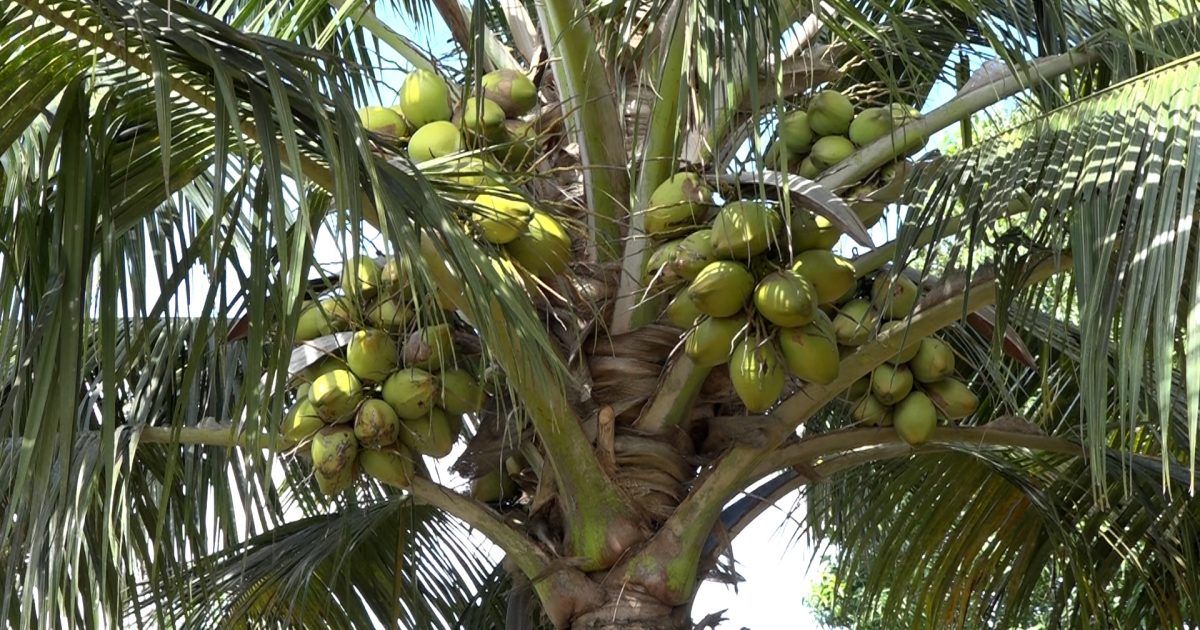Farmers in the coastal region have been encouraged to adopt hybrid coconut farming to boost yields and meet the growing demand of the crop.
Stakeholders in the coconut subsector, led by the Micro Enterprise Support Programme Trust (MESPT), are urging farmers to move away from the traditional African tall coconut tree varieties, which have low yields, and start cultivating new hybrid varieties such as the Sampoorna from India.
MESPT Chief Executive Officer Rebecca Mukhoye explained that the Indian variety, currently being piloted at Nyuani farm in the Mshongoleni area of Malindi Sub County, can produce up to 350 nuts per tree, compared to the traditional African tall varieties that yield fewer than 50 nuts per season.
MESPT, in collaboration with the Kenya Agricultural and Livestock Research Organization (KALRO), the Kilifi County Government, the Danish International Development Agency (DANIDA), and Pwani University, is promoting the hybrid coconut variety, believing it has the potential to revolutionize the coconut subsector.
Speaking at the pilot farm on Tuesday, Ms. Mukhoye said that in 2019, her organization began an initiative with coastal counties to facilitate the importation of hybrid coconut trees. About 200 farmers in Kilifi County have already adopted the initiative.
“We are examining the adaptability of the crop and collaborating with KALRO, the Kenya Plant Health Inspectorate Service (KEPHIS), and private sector organizations in this region,” she said. “The cultivation of hybrid coconuts has been instrumental, and farmers have achieved significant harvests per tree,” she noted.
Ms. Mukhoye also stated that MESPT is promoting hybrid coconut farming as an alternative for smallholder farmers to increase productivity per unit area and enhance the commercialization of the coconut value chain.
To reduce seedling costs, MESPT is working on establishing local production facilities to avoid the high costs associated with importing seedlings from India.
Prof. Najia Mohamed from Pwani University and chairperson of the Coconut Technical Committee, noted that the demand for hybrid coconut seedlings exceeds the current capacity. She called for broader partnerships and national government support to provide seedlings to farmers.
Dennis Wasike from the Embassy of Denmark in Kenya said that DANIDA has decided to finance the coconut value chain to improve farmers’ livelihoods by introducing fast-growing and high-yielding coconut varieties in the region.
“Our support is highly catalytic; we provide the initial push, and then the government and the private sector should take it up and roll it out to the farmers,” he said.
Kilifi County Chief Officer for Agriculture, Teddy Yawa, called for collaboration with other county governments in the coastal region to import hybrid coconut seedlings from India, making them more accessible and affordable for farmers.
He mentioned that the price of hybrid seedlings, ranging from Sh2,000 to Sh2,500 per seedling, is beyond the reach of local farmers, stressing the need for county government subsidies.
Mr. Rashid Kalu, whose Nyuani farm is hosting the pilot project, reported significant improvements in coconut production, with up to 350 nuts per tree per season. He encouraged more farmers to embrace the new variety.
Lamu County Executive Committee Member for Agriculture, Mr. Jams Gichu, emphasized the high demand for coconuts locally and regionally, urging farmers to adopt fast-growing, high-yielding varieties to meet this demand.
He praised the private sector’s involvement in supporting local farmers to import seedlings from India, which he said, would simplify the process for county governments to purchase and distribute the seedlings to farmers.
By Emmanuel Masha




